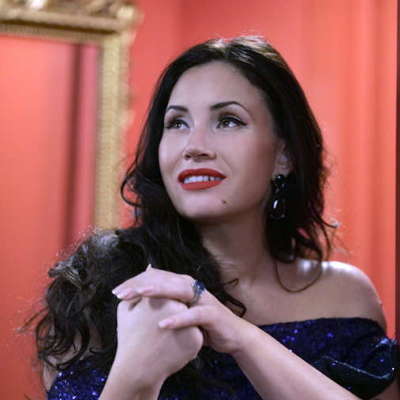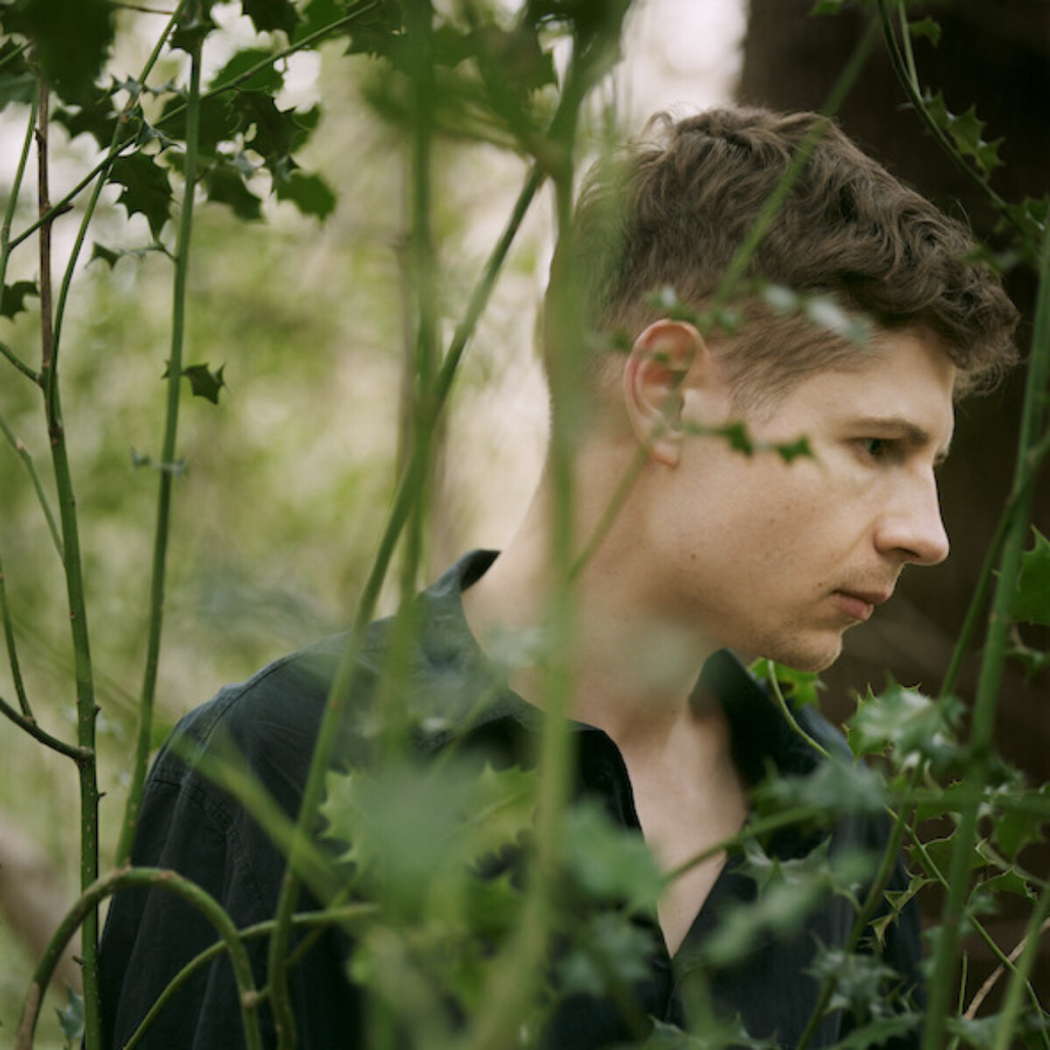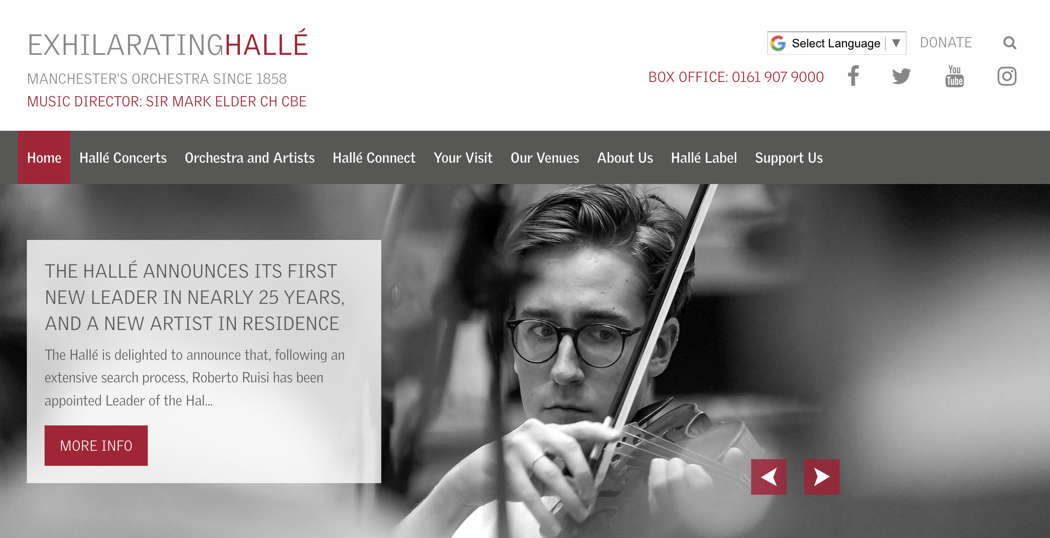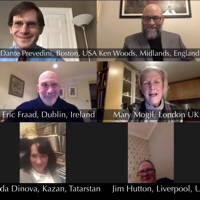 MET STARS: From 2002 until 2021 the late Maria Nockin reported from Arizona, mostly on live opera productions.
MET STARS: From 2002 until 2021 the late Maria Nockin reported from Arizona, mostly on live opera productions.
Looking Back and Forward
MIKE WHEELER was at the first concert in Nottingham Royal Concert Hall's orchestral season
Twenty years ago, the Hallé Orchestra began a residency at Nottingham's Royal Concert Hall, so there was quite an atmosphere at the first concert in the hall's new orchestral season – Nottingham, UK, 7 October 2022.
As we settled into our seats, a screen suspended over the platform reminded us of highlights from the eighty-seven Hallé concerts during this period, not least – among the more recent ones – a thrilling Beethoven Ninth Symphony just weeks before the first 2020 Covid lockdown.
After an appreciation from Music Programme Manager Neil Bennison, the orchestra's Music Director Sir Mark Elder's reply emphasised how much he and the orchestra enjoy their visits to Nottingham. They were then presented with a glass sculpture by local artist Ingrid Pears, its twisty flame-shape inscribed with Carl Nielsen's words: 'Music is life, and like it, inextinguishable'.
The concert itself began with Smetana's Vltava, the opening limpid, bubbly, and rhythmically alert. The horns resounded through the forest, the polka had an infectious skip and hop, and the swirling currents of the St John's Rapids were positively fierce. The quotations from Vyšehrad (the first tone-poem in the sequence making up Má Vlast), representing the castle of that name, stood proud and stately, and the river's disappearance into the distance was deftly done.
Pavel Kolesnikov was the soloist in Rachmaninov's Piano Concerto No 3, bringing out the melancholy in the opening – I don't think I've ever heard the piano's first entry emerge from such a quiet start. He also made the mercurial moments sparkle, with his crisp, incisive finger-work. Climaxes, from both soloist and orchestra, were full-bodied, but always with a sense of more expressive power being kept in reserve. We heard the shorter version of the solo cadenza, in which Kolesnikov found moments of utter stillness, and the wind solos just over half-way through were given plenty of space. The movement's ending scampered away engagingly. There was plenty of inwardness and warmth in the second movement, and the central waltz episode was eased into gently. The finale was suitably big-boned, but with no sense of points being unnecessarily underlined. Kolesnikov's playing was transparent when it mattered, and still haunted by the melancholy of the first movement's opening in places. Again, there was plenty of emotional heft held back for when it really paid off.

Pavel Kolesnikov. Photo © Eva Vermandel
The screen above the orchestra was back in business in the second half, this time carrying titles to guide us through the scenario of Richard Strauss's Ein Heldenleben. The solid bass and cello tone – partly resulting from the cellos' central, forward-facing position in the Hallé Orchestra's regular platform lay-out – put its stamp on the performance right from the word go, launching into a expansive take on the opening theme. The hero's whinging critics were sharply characterised, by spiky woodwind and muted trumpets, and grumpy, sententious tenor and bass tubas.
Then Strauss's wife, Pauline, comes on the scene – and what a solo for the Hallé to throw at new leader Roberto Luisi just a few weeks into the job! Needless to say, his portrayal of her waywardness – beguiling one moment, tetchy the next – was as vivid as his technical assurance was complete. The love scene that follows was all warmth and tenderness.

Screenshot from the Hallé Orchestra website announcing Roberto Luisi as the orchestra's first new leader in nearly twenty-five years
In the hero's battle with his critics, there was a lively sense of Strauss's delight in seeing how much noise he could make, and clearly not expecting anyone to take it seriously. (It's a waltz, for heaven's sake!) The horn-call from Don Juan didn't quite ring out as much as it would in the original, which was arguably apt for a quotation, placing it at one remove. The string of self-quotations that followed had almost a pastoral calm at first, and as the hero withdrew, there were some dark moments among the overall tranquillity. The violin and horn duet, barely a whisper at times, was a touching conclusion.
An occasion to look back, then, but as the final screen title reminded us, one on which to look forward as well.
Copyright © 13 October 2022
Mike Wheeler,
Derby UK

ARTICLES ABOUT THE HALLÉ ORCHESTRA
ARTICLES ABOUT THE NOTTINGHAM ROYAL CONCERT HALL



